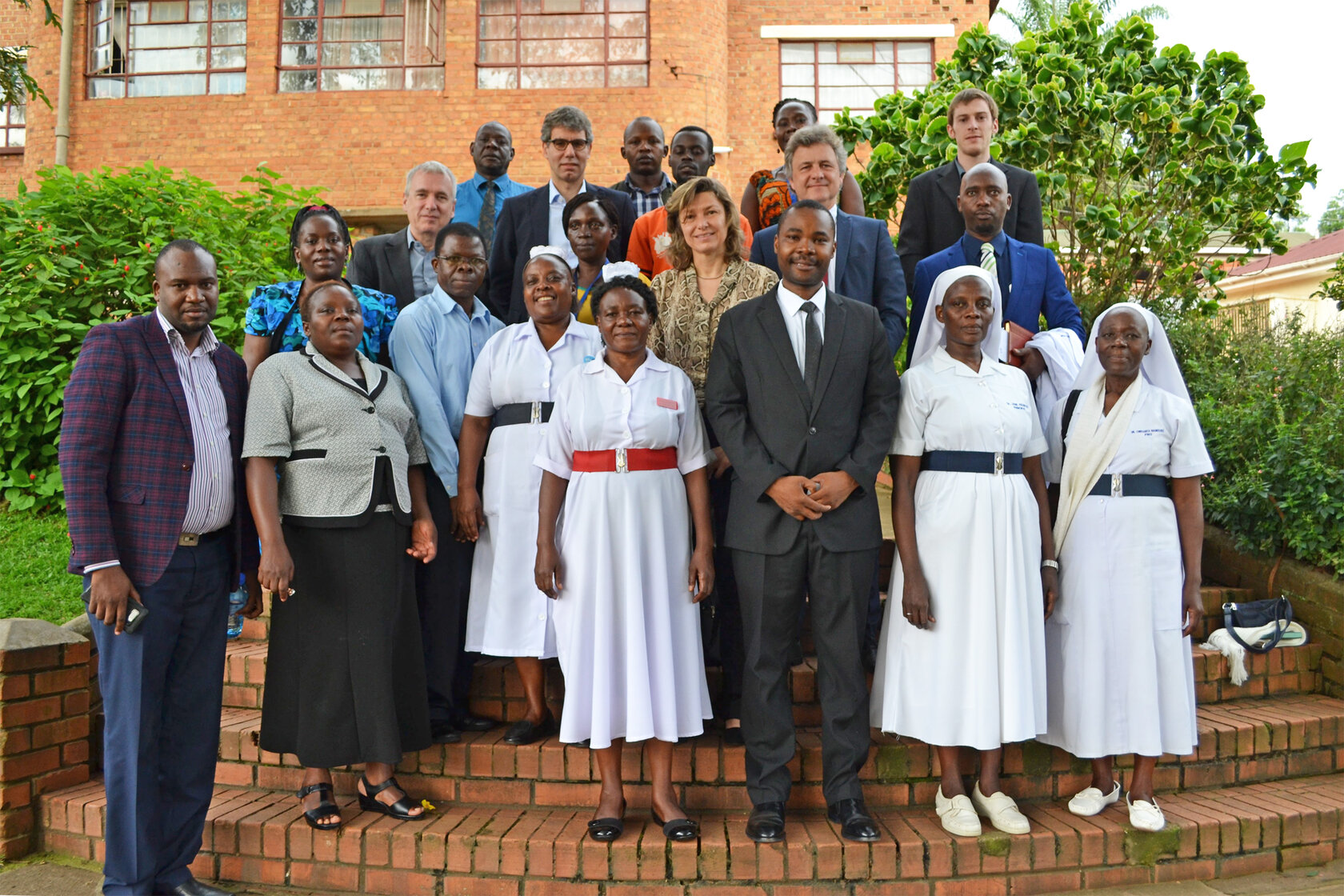Water: the fuel of life
Project commitment for sustainable wastewater treatment and reuse for a hospital in Kampala, Uganda
December 17, 2020
Hospital wastewater is to be considered particularly problematic, as it is significantly more contaminated with pharmaceutical residues, their metabolites, and pathogenic germs than municipal wastewater. This is a particular problem in African countries, where wastewater is discharged untreated into the environment. The result is inadequate treatment in the central municipal wastewater treatment plants. For example, in Kampala, the capital of Uganda, only about 7% of wastewater is currently sent to a municipal treatment plant.
Therefore, the goal of the project now underway is to develop and pilot a robust and cost-effective technology that enables decentralized treatment of hospital wastewater with a high percentage of renewable energy. For this purpose, a combination of a membrane bioreactor (MBR) and an activated carbon treatment system will be used, which will be operated to a high degree by means of photovoltaic useful energy. In the MBR technology, membranes with fine pores (0.1-0.01 µm pore diameter) are used instead of sedimentation tanks to separate the activated sludge, which are immersed in the aeration tank. This allows even the finest particles and germs to be retained, resulting in high water quality. The downstream activated carbon treatment is also intended to retain traces of dissolved pharmaceutical residues, etc. The special challenge of the project is to achieve a high water quality. The particular challenge of the project is to design these technologies in a simple and cost-effective way, whereby as many plant components as possible should be available locally in Africa. The plant combination is to be set up and piloted as an example at Lubaga Hospital in Kampala (capacity: approx. 10 m3/day).
The Lubaga Hospital in Kampala is one of the largest hospitals in Uganda. It was visited on a delegation trip with Karlsruhe Mayor Frank Mentrup, the Karlsruhe EnergyForum, and Prof. Jan Hoinkis of the Karlsruhe University of Applied Sciences - Technology and Economics in January 2019. The aim of the delegation trip was to shape projects and bring together companies as well as institutions in order to offer innovative, but also socially responsible and environmentally friendly solutions. From the visit of the hospital in the context of the journey the now realized project idea had developed, since the head of the city of Karlsruhe wishes itself, in particular in the health sector, strengthened connections.
The project is being spearheaded by Prof. Jan Hoinkis in cooperation with the company Equator Solar Systems Ltd. (EQS) and the "Centre for Research in Energy and Energy Conservation" at Makerere University in Kampala, and financially supported by the Deutsche Bundesstiftung Umwelt (DBU) . EQS has many years of experience and expertise in PV technology on the ground in Kampala and is also well connected throughout the region. The company has already installed a PV system at Lubaga Hospital, which has been operating successfully for several years. A new, innovative aspect for the project is the use of new types of stationary energy storage systems made of so-called supercapacitors ("supercaps") to improve the problems with the currently used energy storage systems (Li-ion batteries, lead-acid batteries). Supercaps have a large power density and are characterized by very fast charge and discharge curves. As a result, these systems can be very reliably buffered against fast and severe load peaks and troughs. Supercapacitor technology has improved significantly over the past several years, and relatively large capacitances are now available on the market at acceptable prices. As part of the project, Sneha De, a master's graduate from the Sensor Systems Technology program at the Faculty of Electrical Engineering and Information Technology, will complete a doctoral thesis.
The piloting of the photovoltaic-powered wastewater treatment system will be accompanied or supplemented by training courses for future operators. The demonstration of the solution pathway through piloting at Lubaga Hospital will serve as a model for wastewater treatment and reuse in hospitals in Uganda and other countries in East Africa.
